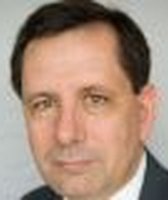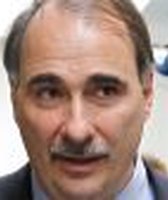Stand up for the facts!
Our only agenda is to publish the truth so you can be an informed participant in democracy.
We need your help.
I would like to contribute
SUMMARY: Obama gets his facts right when he attacks John McCain about lobbyists working on his campaign. But experts say McCain has a long record of reform and the lobbyist issue isn't so cut and dry.
With increasing confidence that he has secured the Democratic nomination, Sen. Barack Obama is turning his attacks to Sen. John McCain, the presumptive Republican nominee. McCain is too tied to Washington to create real change, argues Obama, and evidence of this is that McCain has stocked his campaign with powerful federal lobbyists.
"We need a president who sees the government not as a tool to enrich friends and high-priced lobbyists, but as the defender of fairness and opportunity for every American," Obama told a crowd of 15,000 people in Tampa on May 21, 2008.
"Ten years ago, John McCain offered a bill that said he would ban a candidate from paying registered lobbyists," Obama said. "He did this because he said that having lobbyists on your campaign was a conflict of interest. This is what he said 10 years ago. Well, I'll tell you John McCain then would be pretty disappointed with John McCain now, because he hired some of the biggest lobbyists in Washington to run his campaign. And when he was called on it, his top lobbyist had the nerve to say that the American people won't care about this."
We broke Obama's comments into three parts and concluded he's largely on target.
First, we delved into legislative history and found that McCain did introduce a bill, in 1996 and again in 1997, to ban lobbyists from being paid by political campaigns. The Lobbying Conflict of Interest Elimination Act said that "a candidate and the candidate's authorized committees shall not make disbursements for any services rendered by any individual during any period if such individual was required to register for such period as a lobbyist."
McCain made remarks about the bill that are recorded in the Congressional Record on Jan. 22, 1997: "Registered lobbyists who work for campaigns as fundraisers clearly represent a conflict of interest. When a campaign employs an individual who also lobbies that member, the perception of undue and unfair influence is raised. This legislation would stop such practices." The bill never made it out of committee. Nevertheless, Obama's statement is True.
Next, we checked the claim that McCain "hired some of the biggest lobbyists in Washington to run his campaign" and concluded that he did.
McCain's campaign instituted a policy on May 15, 2008, that current lobbyists may not work for the campaign, and that former lobbyists need to disclose their ties. Campaign volunteers who are lobbyists may not advise on the policy matters for which they lobby, nor may they lobby McCain's Senate office or committee staff.
The policy came after two advisers resigned because they worked for a firm hired to improve the image of Myanmar's ruling military junta. Three other advisers have also left, including Tom Loeffler, the national finance co-chairman. Loeffler is also a lobbyist and founder of the Loeffler Group.
But the campaign is still thick with former lobbyists, some of whom left or took unpaid leaves of absence from their lobbying firms just before joining the campaign.
One of them is Charlie Black, a senior adviser on the McCain campaign. Described by the Washington Post as a "longtime uber lobbyist," Black retired as chairman of BKSH & Associates in March. He told the New York Times he is not paid by the campaign.
Then there's campaign manager Rick Davis, who hasn't been a registered lobbyist for five years and took a leave of absence from his powerful lobbying firm Davis Manafort two years ago.
Lastly, we checked Obama's claim that with regard to lobbyist ties in the McCain campaign, "his top lobbyist had the nerve to say that the American people won't care about this."
Obama didn't say who he was talking about, and his campaign did not respond to clarify.
But we think Obama was referring to comments Black made aboard McCain's campaign plane on May 19. According to accounts from NBC News and the New York Times, as reporters peppered Black with questions about the debate over former lobbyists working for the campaign, Black responded, "This is complete inside-the-Beltway nonsense."
NBC News' Carrie Dann recounted the interview with Black as follows:
"Asked today if questions about potential conflicts-of-interest might be affecting the choices of average American voters, Black responded bluntly: "Hell, no." He was careful to say that Sen. McCain is committed to maintaining the integrity of the campaign — hence his commitment to the re-vetting process. But, Black added, 'I do not believe that average voters out there care.'" We found Obama's statement to be True.
In that interview, Black defended the use of former lobbyists.
"I think you can change professions and unless you did something unethical or criminal, your past profession should not be injected into the candidate's campaign," Black told the New York Times. "It's absurd."
Nonetheless, the fact that McCain has been put on the defensive on this issue is remarkable after more than a decade positioning himself as a champion of reining in special-interest money that pours into federal campaigns.
None other than Public Citizen, a government watchdog group, has come to McCain's defense.
In a news release issued Feb. 26, 2008, Public Citizen noted that while it has disagreed with McCain on many issues, he has been a leader (along with Obama) in the "fight for good government."
"Regardless of how many lobbyists are working on his campaign or raising money for him, John McCain has fought for 14 long, hard years for reforms that seriously limit lobbyists' power," Joan Claybrook, president of Public Citizen, stated.
McCain spokesman Tucker Bounds called Obama's attacks empty rhetoric.
"John McCain has an unmatched record of fighting the influence of special interests in Washington," Bounds said. "The McCain campaign has implemented the strictest policy against lobbyists in presidential campaign history, and we challenge Sen. Obama to meet our standard."
Bounds challenged Obama to disclose the list of lobbyists advising his campaign. "What is Sen. Obama hiding?" Bounds asked.
All this attention on lobbyists is probably inevitable given the relatively recent Jack Abramoff lobbying scandal.
"Lobbyists are being used as a symbol of the problems in Washington," said Massie Ritsch, a spokesman for the nonpartisan Center for Responsive Politics, namely that well-funded corporations are getting a bigger voice in Washington than the rest of us.
But lobbyists aren't necessarily the worst people to have on campaigns, Ritsch said. They are well connected, they know how to play the political game, and they are usually fairly well versed on some policy area pertaining to the clients they have.
Obama's pledge not to accept money from lobbyists — while politically smart — is fairly symbolic, Ritsch said. Lobbyist and PAC money makes up just a small fraction of the money raised in a political election.
McCain's choices to surround himself with prominent Washington lobbyists has made him vulnerable to such an attack, said Steve Weissman, associate director for policy at the Campaign Finance Institute.
But in the big picture, he said, "all of these candidates are taking money from the companies that employ these lobbyists."
Obama's pledge not to take donations from lobbyists, as well as McCain's pledge not to hire federal lobbyists, are "modest gestures," Weissman said. "But they don't attack the underlying problem, and that is that the interest of the wealthy corporations can still contribute money and bundle, or fundraise and give advisers to these candidates."
Our Sources
YouTube, "Obama Criticizes McCain on Lobbyists" from May 21 speech in Tampa
New York Times, "Top Aide to McCain Defends Lobbying Work" by Michael Luo, May 19, 2008
MSNBC, "Adviser Calls Lobbyist Scrutiny 'Nonsense'" by Carrie Dann, May, 19, 2008
Media Matters, "CNN, First Read repeated McCain adviser's false claims about campaign manager's lobbying history" on May 20, 2008
New York Times, "McCain Finds a Thorny Path in Ethics Effort"
Washington Post, "McCain Adviser's Work As Lobbyist Criticized" by Michael D. Shear and Jeffrey H. Birnbaum, May 22, 2008
Politico, "Lobbyists: This is our thanks?" by Jeanne Cummings, May 21, 2008
New York Times, "The Early Word: Conflict Issues for McCain" by Ariel Alexovich, May 16, 2208
Media Matters, "Media advance myth of McCain as lobbyist foe" Feb. 26, 2008
The Hill, "Public Citizen comes to McCain's defense" by Jim Snyder, Feb. 26, 2008
Huffington Post, "More Lobbyists On McCain Staff Than Any Other 08 Candidate" by Thomas B. Edsall, May 23, 2008
Washington Post, "The Anti-Lobbyist, Advised by Lobbyists" by Michael D. Shear and Jeffrey H. Birnbaum, Feb. 22, 2008
U.S. Senate, "Lobbying Disclosure Act search engine"
Thomas, A bill to prohibit campaign expenditures for services of lobbyists, and for other purposes , March 6, 1996
Thomas, A bill to prohibit campaign expenditures for services of lobbyists, and for other purposes , introduced Jan. 22, 1997
Congressional Record – Senate , Jan. 22, 1997
New York Times, Many proposals, few supporters, on campaign law , April 6, 1997
Thomas, To amend the Federal Election Campaign Act of 1971 to provide bipartisan campaign reform , became law March 22, 2002
Interview with Massie Ritsch, a spokesman for the Center for Responsive Politics, May 23, 2008
Interview with Steve Weissman, associate director for policy at the Campaign Finance Institute, May 23, 2008
Interview with McCain campaign spokesman Brian Rogers, May 23, 2008













































